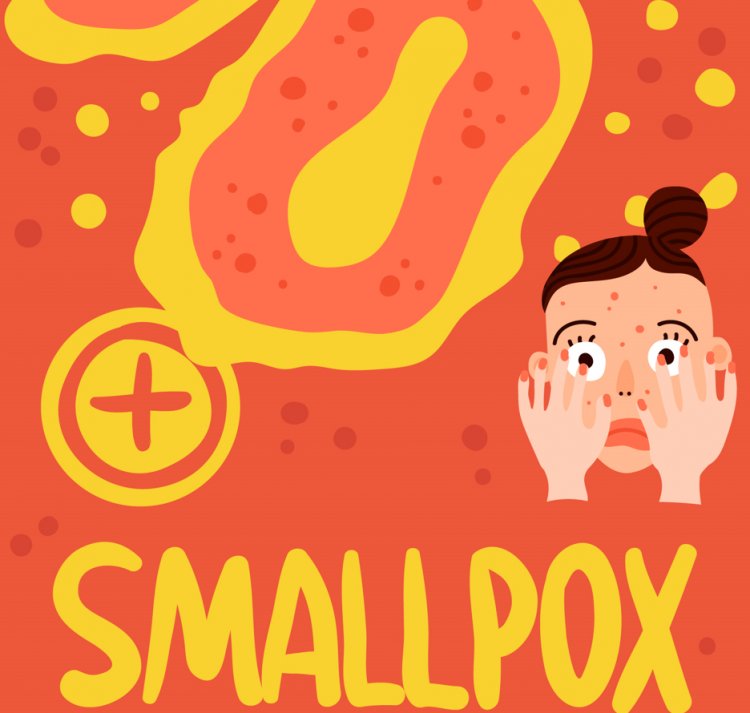Comprehensive Examination of Smallpox: From Historical Origins to Clinical Manifestations
Smallpox, a notorious viral infection caused by the variola virus, has left an indelible mark on human history. In this comprehensive exploration, we delve into the historical roots of smallpox, its clinical manifestations, transmission dynamics, preventive measures, and the remarkable journey towards its eradication.

Historical Origins and Impact
Smallpox has haunted humanity for millennia, with evidence of its existence dating back to ancient civilizations. Its devastating impact reverberated through history, causing widespread epidemics and shaping socio-political landscapes. The introduction of variolation and later vaccination revolutionized disease control, paving the way for its eventual eradication.
Clinical Features and Variants
The clinical spectrum of smallpox encompasses a myriad of symptoms, ranging from fever and malaise to the characteristic rash that spreads across the body. Variants of smallpox, including ordinary, modified, flat, and hemorrhagic types, exhibit diverse clinical presentations and outcomes, posing unique challenges to diagnosis and management.
Transmission Dynamics and Pathogenesis
Smallpox transmission primarily occurs through respiratory droplets or direct contact with infected individuals or fomites. The variola virus invades the host's respiratory mucosa, leading to systemic dissemination and the characteristic onset of symptoms. The pathogenesis of smallpox involves viral replication, immune evasion, and inflammatory responses, culminating in widespread tissue damage and organ dysfunction.
Preventive Measures and Vaccination Strategies
Preventing smallpox transmission relies on a multifaceted approach, including vaccination, infection control measures, and surveillance. Mass vaccination campaigns, pioneered by the World Health Organization (WHO), played a pivotal role in curbing transmission and reducing disease burden. The smallpox vaccine, derived from the vaccinia virus, conferred immunity against variola virus infection, contributing to its eventual eradication.
Eradication Efforts and Global Impact
The eradication of smallpox stands as a testament to human ingenuity and collective action. The Global Smallpox Eradication Program, launched in 1967, spearheaded vaccination campaigns and surveillance efforts, leading to the last natural case of smallpox in 1977. The official declaration of smallpox eradication in 1980 marked a historic milestone in public health, demonstrating the power of international cooperation in combating infectious diseases.
Current Challenges and Future Directions
While smallpox has been eradicated, challenges persist in ensuring global preparedness against potential outbreaks and bioterrorism threats. Ongoing research into antiviral therapies, novel vaccines, and surveillance technologies remains critical in safeguarding public health and preventing the resurgence of smallpox or similar pathogens.
In conclusion, Smallpox, once a scourge of humanity, has been consigned to the annals of history through concerted global efforts. By understanding its historical significance, clinical complexities, and preventive strategies, we honor the legacy of those who fought tirelessly against this formidable foe. As we confront emerging infectious diseases in the modern era, the lessons learned from smallpox remain invaluable in shaping our response to future health crises.
#Smallpox #History #Vaccination #DiseaseControl #PublicHealth #Eradication #GlobalHealth #InfectiousDiseases #Prevention #HealthCare #Research #FutureHealth
Disclaimer:
The information provided in this article is for educational purposes only and should not be considered medical advice. If you have any health concerns or are experiencing symptoms, it is important to consult with a healthcare professional, such as a doctor or clinic, for proper diagnosis and treatment. Always seek the advice of your doctor or other qualified health provider with any questions you may have regarding a medical condition. Do not disregard professional medical advice or delay in seeking it because of something you have read in this article.
What's Your Reaction?





















